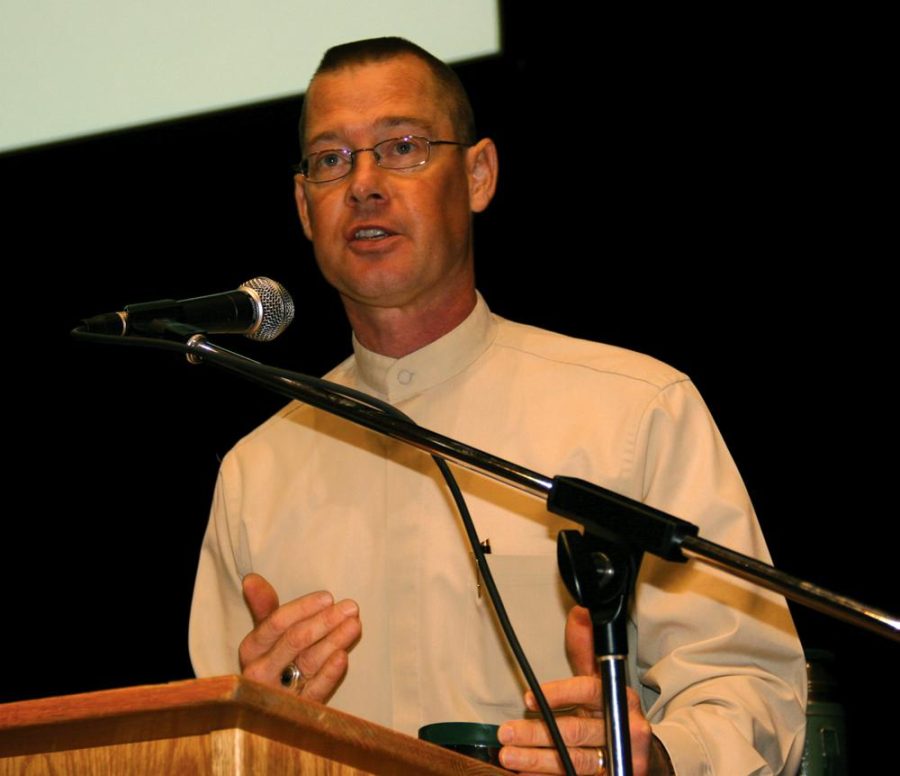Cosumnes River College philosophy Professor Rick Schubert gave a lecture on bioethics in relation to education as part of the One Book CRC Project in the Recital Hall on Sept. 12.
In a lecture regarding the importance of informed consent, Schubert highlighted the significance of the topic as it relates to this year’s One Book selection, “The Immortal Life of Henrietta Lacks” by Rebecca Skloot. Schubert also demonstrated how the issue affects students and educators at CRC.
“Education is crucial to informed consent because it is education that makes the informed part of informed consent possible,” Schubert said in his lecture. “Without the requisite education, informed consent cannot occur.”
Schubert further explained how the issue relates to students enrolling for classes. Every year he begins the first classes of the semester by explaining to his students that they’ve signed up for three-unit lecture courses. Then Schubert asks each class what that means. In most cases, the only students who raise their hands have already taken a course with him.
“I’ve been surveying my students on this point for many years,” Schubert said. “Only about 10 percent of the students who sign up for a three-unit lecture course understand what they’ve signed up for in doing so. 90 percent weren’t fully informed when they made the decision to enroll in the course. They hadn’t given their informed consent.”
Schubert demonstrated how sending students into a college course without informed consent can be potentially problematic. Students can enroll in a class they don’t want just because it satisfies a prerequisite without realizing another class can satisfy the same requirement. They may also not understand that the syllabus they sign functions as a contract, he said.
There can even be other consequences.
“It leads to relationship problems between student and professor because of different expectations of what the course will involve,” Schubert said in an interview after the lecture. “It also affects the experience of students in the class who have given informed consent, as students who haven’t struggle to understand what they’ve agreed to.”
Schubert compared the ethical dilemma of informed consent in education with examples from the book “The Immortal Life of Henrietta Lacks,” which recounts the true story of cancer patient Henrietta Lacks and the medical procedures that were conducted on Lacks. Most of the procedures were conducted without informed consent from Lacks or her family.
While cancer cells provided from Lacks’ autopsy have gone on to save countless lives to this day, they were obtained without the informed consent of her husband, who had no education past the fourth grade, and was not familiar with any medical procedures.
Students had a chance to ask Schubert questions after the lecture.
“I view college education as a more serious matter,” said Te’lana Simpkins, an 18-year-old law major, after the bioethics presentation concluded.

